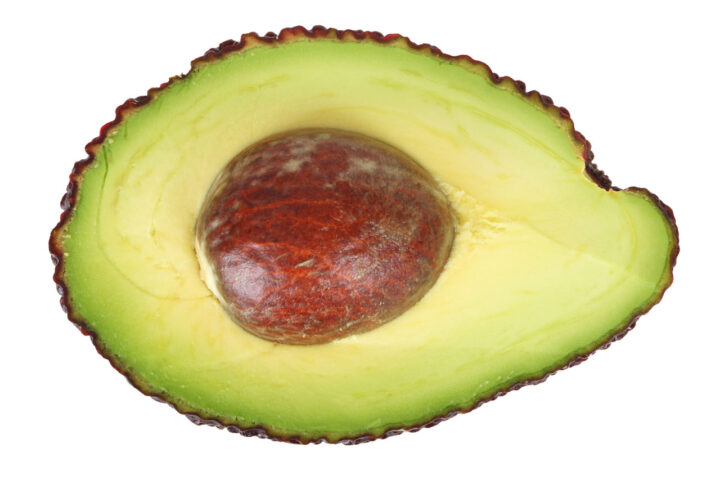
Vitamin D’s Influence on Gut Microbiome Enhances Cancer Immunotherapy: Exploring New Avenues in Cancer Treatment
May 7, 2024
Navigating the Business of Cricket: Sponsorship and Commercial Partnerships in the Pakistan Super League (PSL)
May 16, 2024Can Avocado Consumption Reduce Diabetes Risk? and importance of Avocado in Diet.
Introduction:
Avocados, known for their nutritional richness, have been a subject of interest in recent research regarding their potential role in reducing the risk of diabetes. This study from Mexico delves into the association between avocado consumption and diabetes risk among adults.
Importance of the Study:
Diabetes is a significant health concern globally, and identifying dietary factors that may mitigate its risk is crucial for public health interventions. Avocados offer a unique nutritional profile that warrants investigation into their potential benefits for diabetes prevention.
Methodology:
The study analyzed data from the Mexican National Survey of Health and Nutrition, spanning multiple years and including over 25,000 participants. Through surveys and dietary assessments, researchers explored the relationship between avocado consumption and diabetes risk while considering various demographic and health-related factors.
Findings:
Women who consumed avocados exhibited a significantly lower risk of developing diabetes compared to non-consumers, with a notable 22% lower risk in unadjusted models and a more substantial 29% lower risk in adjusted models. However, this protective effect was not observed among men. The study also highlighted socio-economic and dietary differences between avocado consumers and non-consumers.
Importance of Dietary Diversity:
While avocados offer promising health benefits, it’s essential to emphasize the importance of overall dietary diversity and balanced nutrition. No single food can provide all the nutrients needed for optimal health, and a varied diet that includes fruits, vegetables, whole grains, and lean proteins is key to supporting metabolic health and reducing the risk of chronic diseases like diabetes.
Strategies for Diabetes Prevention:
Incorporating nutrient-rich foods like avocados into daily meals can be part of an effective strategy for diabetes prevention. However, it’s equally important to prioritize regular physical activity, manage stress levels, and maintain a healthy weight. Additionally, monitoring blood sugar levels and seeking regular medical check-ups are essential components of diabetes prevention and management.
Advantages of Avocado Consumption:
Avocados are packed with fiber, antioxidants, and healthy fats, all of which contribute to improved metabolic health and insulin sensitivity. Their low glycemic index makes them a suitable choice for maintaining stable blood sugar levels, and their versatility in culinary applications makes them easy to incorporate into various dishes.
Disadvantages and Considerations:
While avocados offer numerous health benefits, they are also calorie-dense, so portion control is essential, especially for individuals aiming to manage their weight. Additionally, some people may have allergies or sensitivities to avocados, so it’s crucial to be mindful of individual dietary needs and preferences.
Conclusion:
The findings of this study suggest a potential link between avocado consumption and a reduced risk of diabetes, particularly among women. However, further research is needed to elucidate the underlying mechanisms and to explore potential sex-specific differences in the relationship. While avocados can be a valuable component of a healthy diet, they should be integrated as part of a balanced and diverse nutritional approach to diabetes prevention.
FAQs
1. How does avocado consumption reduce diabetes risk?
Avocado consumption may lower diabetes risk due to its rich content of fiber, antioxidants, and healthy fats. These components support metabolic health, insulin sensitivity, and blood sugar regulation, potentially reducing the likelihood of developing diabetes, particularly among women.
2. Are there specific recommendations for avocado intake to lower diabetes risk?
While the study suggests a link between avocado consumption and reduced diabetes risk, specific recommendations for avocado intake remain unclear. It’s essential to incorporate avocados as part of a balanced and diverse diet, rather than relying solely on them for diabetes prevention.
3. Can avocados alone prevent diabetes?
Avocados offer valuable nutritional benefits that support overall health and may contribute to diabetes prevention. However, no single food can prevent diabetes on its own. A holistic approach to diabetes prevention, including dietary modifications, physical activity, and weight management, is recommended.
4. Are there any disadvantages to consuming avocados? While avocados are nutrient-rich and offer numerous health benefits, they are also calorie-dense. Overconsumption of avocados without considering portion sizes can contribute to excess calorie intake, potentially leading to weight gain. Additionally, individuals with avocado allergies or sensitivities should be cautious.
5. How can individuals incorporate avocados into their diet?
Avocados are versatile and can be enjoyed in various ways, such as sliced on toast, blended into smoothies, or mashed into guacamole. Adding avocado to salads, sandwiches, or as a topping for soups and bowls can increase nutrient intake and enhance flavor. It’s essential to balance avocado consumption with other nutritious foods as part of a well-rounded diet.
6. Is there ongoing research on avocados and diabetes prevention?
Research on the health benefits of avocados, including their potential role in diabetes prevention, continues to evolve. While this study provides valuable insights, further research is needed to fully understand the mechanisms underlying the relationship between avocado consumption and diabetes risk, as well as any potential sex-specific differences.


